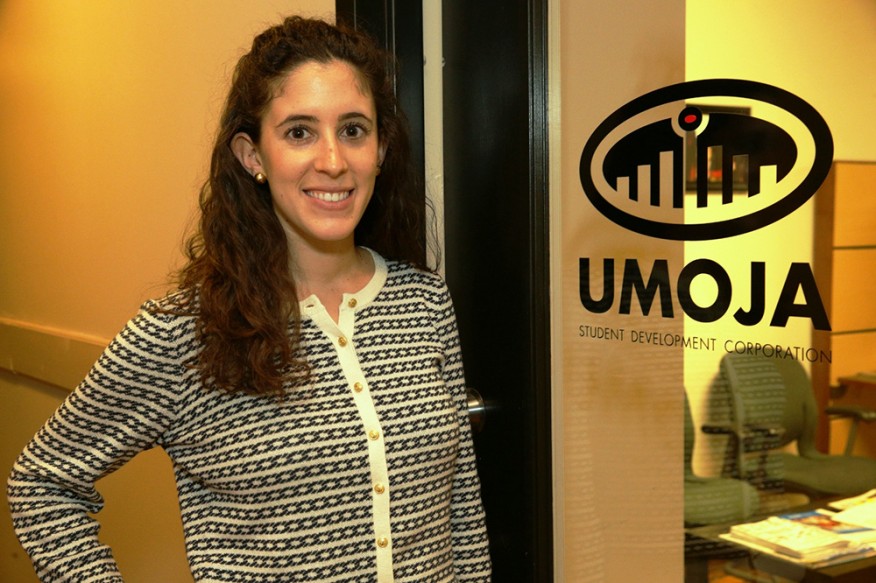-
Practice Area:Community and Social Systems
-
Practice Method Concentration:Community Organization
A philosophy and set of practices known as restorative justice is increasingly being used in schools across the country as an alternative to punitive discipline or “zero tolerance” policies such as suspension and expulsion. Restorative justice moves away from shame and punishment and focuses instead on repairing the harm that’s been caused by bringing all sides into a healing discussion.
It’s an approach that’s helping to reduce school violence while forging stronger relationships among students, teachers, and school staff. It’s also making a positive impact on student engagement and attendance, academic achievement, and graduation and college enrollment rates.
University of Michigan alum Brielle Siskin (MSW ’13) is a restorative justice specialist with Umoja Student Development Corporation, an on-the-ground partner of Chicago’s public schools and districts. The success rate for programs like Umoja’s is extremely high, but changing a school’s culture doesn’t happen overnight.
“We’re challenging a system that’s been in place for a long time,” says Siskin. “We spend between two and five years at a school in order to train the staff and fully implement restorative practices so that they become a permanent part of the school’s culture. We are very intentional about partnering with the right people in each school and becoming part of the school community; so that when we leave we know that our work has made an impact and will be continued.”
Restorative justice adopts many of the techniques of the circle practice that is a way of life for indigenous cultures. Siskin and Umoja establish a “peace room” in the school, a safe and neutral room where students, families, and faculty take part in Peace Circles, Mediations, Restorative Chats & Re-entry Circles. Conflicts are resolved with all sides taking an active role in the resolution.
“Everyone in the room gets the opportunity to speak without interruption, which fosters collaboration, equality and mutual respect,” says Siskin. “When all sides are allowed to speak freely and from the heart, relationships are repaired and ultimately, the entire school community is strengthened.”
Siskin was a National Community Scholars Program (NCS) participant who earned her MSW in December of 2013. The scholarship program is coordinated by the School of Social Work’s Michigan Youth and Community Program (MYCP.
Field placements are offered in Central Appalachia, the Mississippi Delta, and the San Francisco Bay Area. Siskin was instrumental in establishing the city of Chicago as fourth field placement option, where she worked at the Center for Urban Research and Learning at Loyola University and Alternatives Inc.
“I was very passionate about the type of work that was taking place in Chicago with regard to restorative justice practices in the public school system,” says Siskin. “I approached my professors, Katie Richards-Schuster and Barry Checkoway, who advocated for me and made it happen. Katie and Barry were always so supportive of me. I’m from Boston and didn’t have family close by. There was a real spirit of collaboration and trust amongst all of us, and they became my second family. I feel lucky knowing that I made lifelong friends while I was at U-M.”
